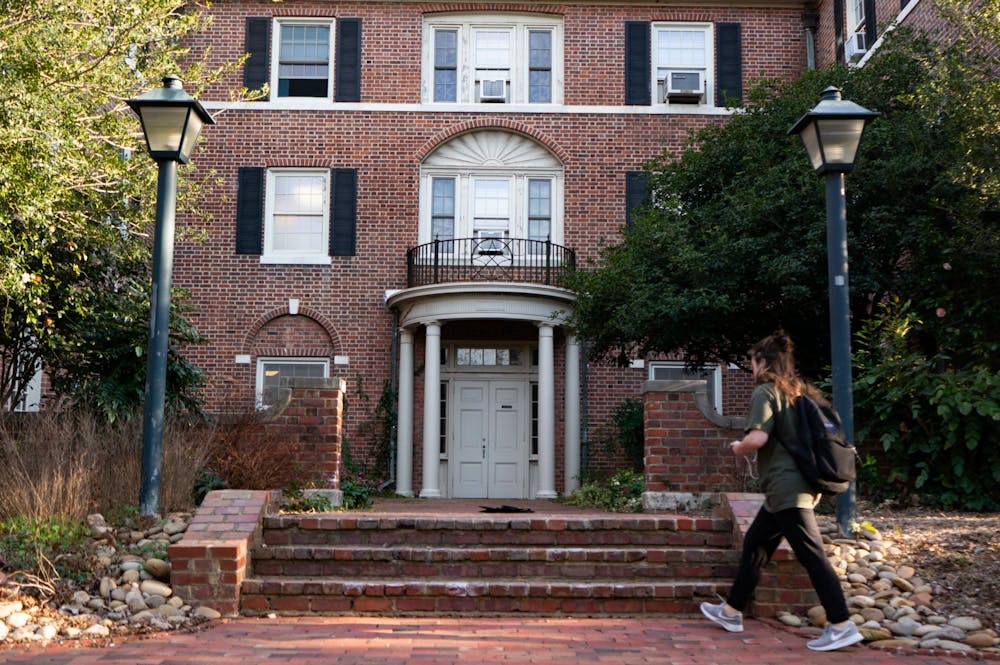Spencer Residence Hall celebrated its centennial anniversary this week with an event on Wednesday evening featuring a presentation from University archivists about the hall’s history and its namesake.
The residence hall was built in 1924 as the first women’s residence hall at UNC. The hall was named after Cornelia Phillips Spencer in 1927, who became the first woman to receive an honorary degree from UNC in 1895.
While Spencer herself could not attend the University in a traditional sense, she was tied to UNC through her father and brothers — who served on faculty — and her husband, who was an alumnus.
Cecilia Moore, retired UNC campus historian, said women originally were required to dine separately from men. The residence hall had parlors, a dining room and kitchen facilities that have since been replaced with a study room and apartment for the resident advisor.
With the passage of Title IX in 1972, which eliminated restrictions on admitting women into the University, the separation gradually changed, Moore said. Up until 1972, the University continued to control the number of women it would admit as students in various ways.
Nicholas Graham, university archivist and a presenter at Wednesday’s event, said learning about the history of Spencer Hall and Spencer herself provides an opportunity to learn about UNC's history with women's education — but also about the role of racism in shaping the University and how influential families and donors influenced state and University governance.
"The University has always been influenced by politics and has always been influenced by people who either have financial or other power and who have specific views on how the University should be running," he said.
Spencer believed women should have an education, but that it should be limited to the home, Lolita Rowe, assistant university archivist for outreach and engagement, said. She also strongly opposed racial equality and the admittance of Black students into the University, Moore added.
In 1868 during the Reconstruction Era, Republicans, who were then considered liberal, took control of the state government. Spencer played a large role in mounting a letter-writing and newspaper editorial campaign to convince families not to send their sons to UNC to deprive the University of students and tuition revenue rather than allowing the University to admit Black students.



